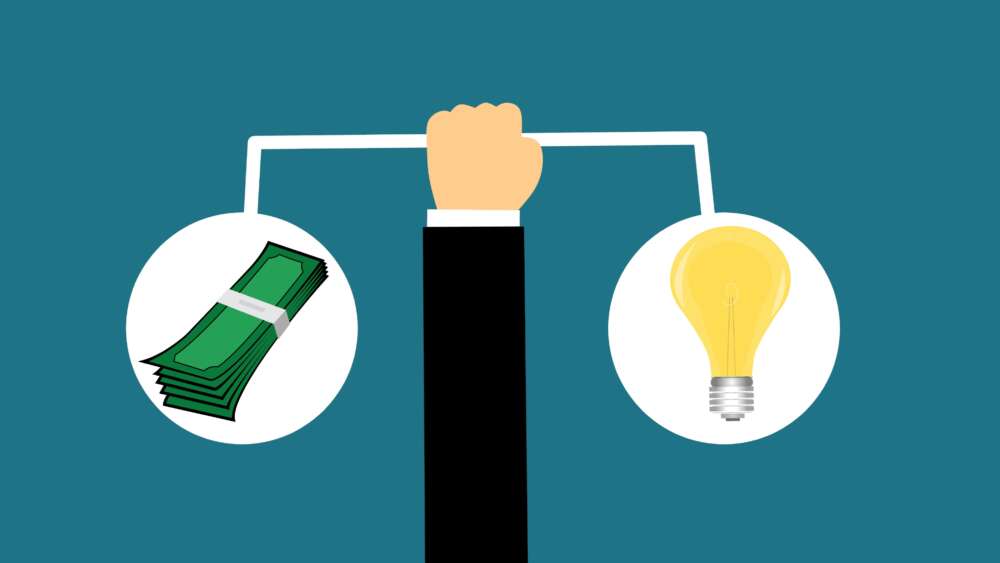This year’s budget speeches have been like a game of snooker – did Treasurer Josh Frydenberg leave the table with any decent scoring shots for Opposition Leader Anthony Albanese to pocket?
That was the game plan – spend a lot of money, a shocking amount for a Coalition government.
This left Labor’s prime ministerial aspirant with a dilemma: spend more and be accused of recklessness, or take some of Scott Morrison’s handouts away from voters.
And how much change would he make to those traditionally Labor causes – refugees, welfare and the environment?
This year’s federal budget and budget reply speeches are the campaign launches for the Coalition and Labor.
The big picture
Peter Martin, Business and Economy editor of The Conversation, usefully gives us the big picture:
“So good, and so unexpected, has been Australia’s economic improvement over the past three months, it has wiped one-third of the projected 2022-23 budget deficit. Or it would have, had the government not decided to give away almost half (45 percent) the windfall,” he wrote.
“That’s one way of looking at the difference between the projections in the December budget update and those presented three months later in Tuesday’s March budget. In December, the deficit for the coming financial year was to be A$98.9 billion.
“Three months later, the budget papers say it would have been $38 billion lower, were it not for an extra $17.2 billion of spending and tax measures taken since the update and in the budget.”
Martin points out that improvement in the budget outlook is due to “Australia’s extraordinary and unexpected success in driving unemployment down to a near 50-year low, with a further improvement forecast in the budget.”
This improvement also means that Labor has an equal – or greater – amount of the windfall to spend.
Labor’s counterpunch
Rather than respond to the Coalition’s budget bounty list, Anthony Albanese’s speech in reply swerved around them like a boxer evading a series of jabs.
As a reminder, they were:
• Cutting fuel excise by 22 cents per litre for six months ($3 billion)
• Up to $1500 tax cut for two years for low-and-middle-wage earners ($4.1bn)
• RATs to concession card holders, GPs, Aboriginal Community Health centres, and remote communities ($24bn)
• Big ticket item – cyber warfare ($9.9bn, mostly in future years).
Instead, Labor has gone for one big new announcement, one big counterpunch while matching the Coalition’s cash payments.
Albanese announced $2.5bn over four years for aged-care funding, dwarfing the Coalition’s $468.3 million, over five years.
The key plank is that all aged-care services will have a registered nurse on-site 24/7, along with more funding, a pay rise for workers, and better food for residents.
Asked by broadcaster Patricia Karvelas on ABC Radio National’s Breakfast program whether this is a good plan. Hammondcare CEO Mike Baird responded.
“I think this is a good plan. It is a pretty significant day for the sector …What we are seeing in summary is we will see more care workers, we will see more nurses, and finally recognition that our care workers have deep value, and that is going to be recognised in higher wages.”
HammondCare is an independent Christian welfare agency with a distinguished record in aged care, particularly in looking after the spiritual and physical needs of people living with dementia.
Baird called on the Coalition to match Labor’s promise to fully fund an increase in workers’ wages expected from a current Fair Work Commission case. That’s on top of Labor’s $.2bn aged care package.
Many Australian families, mine included, have had family members – usually parents – locked down in aged care facilities during the pandemic. We saw mothers and fathers deteriorate in periods of isolation. We saw how the staff struggled under a heavy workload. And we saw some nursing homes collapse.
Let’s hope the Coalition has more to announce – to compete for the vote of those of us who owe care workers a debt of gratitude.
Albanese also renewed some promises Labor had announced already
• Renewable energy: 604,000 new jobs by 2030, with five out of every six in the regions
• Secure work: 465,000 fee-free TAFE places
• Cheaper childcare.
The good news
There are policy differences between the major parties. That’s a relief.
This writer has been worried that this would be a contest in which PM candidate has the better character. Or which party leader is a bully (both have been accused of that). I am glad there is more to talk about than who said what to whom in the party rooms.
Character is important, but we need more to rely on than third-hand material about insider stuff.
Coming soon
We are going to find out whether Labor is still running a “small target” strategy in this election.
We can expect policies on refugees, the environment, even social housing. There’s probably more to come from the ALP, and how bold these announcements will be will drive interest in the election.
Where’s Wally?
One omission from Coalition policies is a religious freedom platform, so far as I can tell. Labor has one, as Family Voice Australia’s Greg Bondar has pointed out to its supporters.
As they say in the journalism trade: more to come.
Email This Story
Why not send this to a friend?



